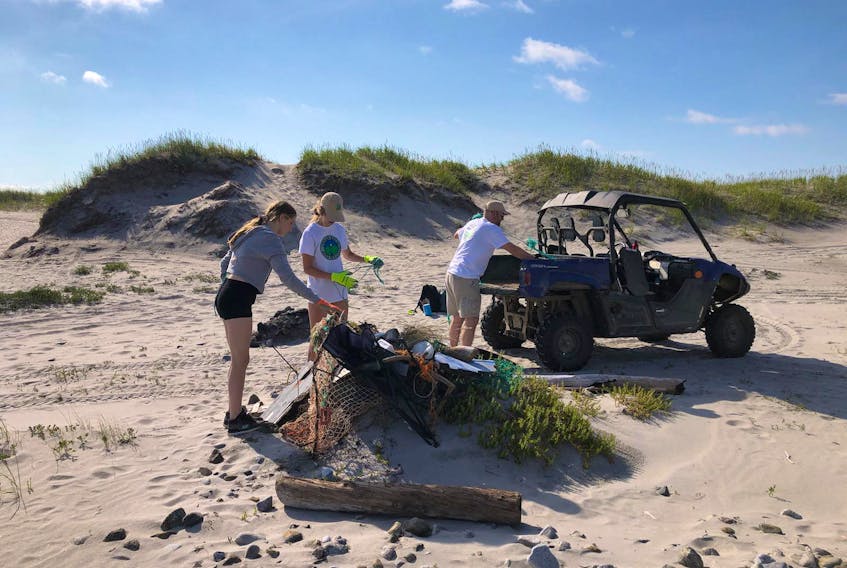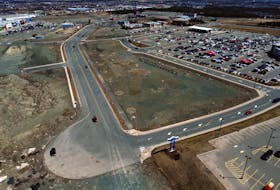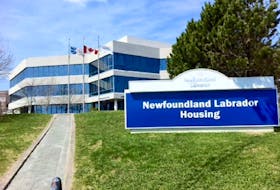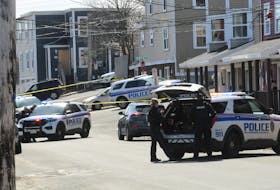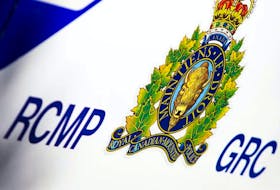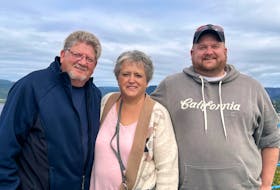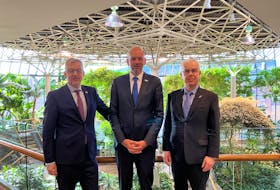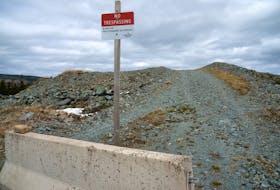Kevin White likes to help out the environment any way he can.
When the calendar turns itself to spring, the New-Wes-Valley resident can usually be found picking up any of the litter he finds around. Just this spring, he filled 12 bags of garbage in Newtown.
“The amount of trash that people litter,” said White. “It hurts my heart.”

He figures that need to help keep his home and, by extension, his region clean comes from his family.
His sister helps with community cleanups when she can, and he will often challenge groups like the Indian Bay Ecosystem Corporation to help with an area.
“It is just something we do as a family,” said White.
So, when that Indian Bay group was looking for some help with its current project in the Cape Freels area, White was quick to put his hand up and get his boots on the ground.
“I believe in a lot of the work that they do,” he said.
The group of half a dozen or so, including White, hit the beaches and dunes on the weekend of Aug. 8.
There they removed old fishing gear, rope, a barbecue, tire rims, plastic buckets and other items from the Cape Island Beach area.
“The amount of shotgun shells (on the beach) was amazing,” said Indian Bay Ecosystem Corporation manager Darren Sheppard.
Sheppard has been with the corporation for the last two years, but it has been around for much longer than that.
The group is in its 32nd year of doing what it can to help preserve the environment around Indian Bay and other parts of Bonavista North. That includes beach cleanup, river restoration, stream cleanup and dealing with pulpwood left in local rivers from an old forestry operation, amongst other tasks.
Sheppard also hosts a podcast called “709 Watershed” for the corporation where they spin tales and talk to people about towns in their region.
“We dabble in anything and everything,” said Sheppard. “If it is environmental, we will put our hands on it.”

The Cape Freels cleanup was the group's second in the area — the first one was done in July. It is also a portion of a larger project — the Community-Nominated Priority Place for Species at Risk project — in the Cape Freels and Queen’s Meade, Newtown, areas.
At the heart of that work is studying shorebirds and the number of species that use Cape Freels as a nesting area. They will also track the type of users the beach sees.
Kaylene Stagg is the project co-ordinator for the species at risk project.
As such, she spends much of her time in her hometown of Cape Freels monitoring and collecting data on the six species of birds associated with the project.
“I usually go down and see what shorebirds are in the area,” said Stagg. “I take pictures, I document, and I report every bird that I see, how many and where they are.
“Since Cape Freels is kind of undeveloped and we’re in rural Newfoundland, there is a lot of habitats out there. It is the perfect spot for shorebirds and other species at risk.”
Those concerned about the environment — like White, Sheppard, Stagg and others — believe more can be done to educate youth about protecting their environment and keeping it clean.
The corporation routinely has student workers in the summers and has played a part in helping them recognize the benefits of working for the world they live in.
Danielle Rogers is in her first summer with the corporation and the 15 year old from Centreville-Wareham-Trinity has been taking notes and applying them to her everyday life.
During the last cleanup in Cape Freels, she hauled an old muffler away from the beach.
“I enjoy what (the corporation) is doing and it has affected mine and my families’ life outside of work, like being more careful with what we do with our garbage” said Danielle. “It is very important.”
Nicholas Mercer is a Local Journalism Initiative Reporter covering central Newfoundland for SaltWire Network.

